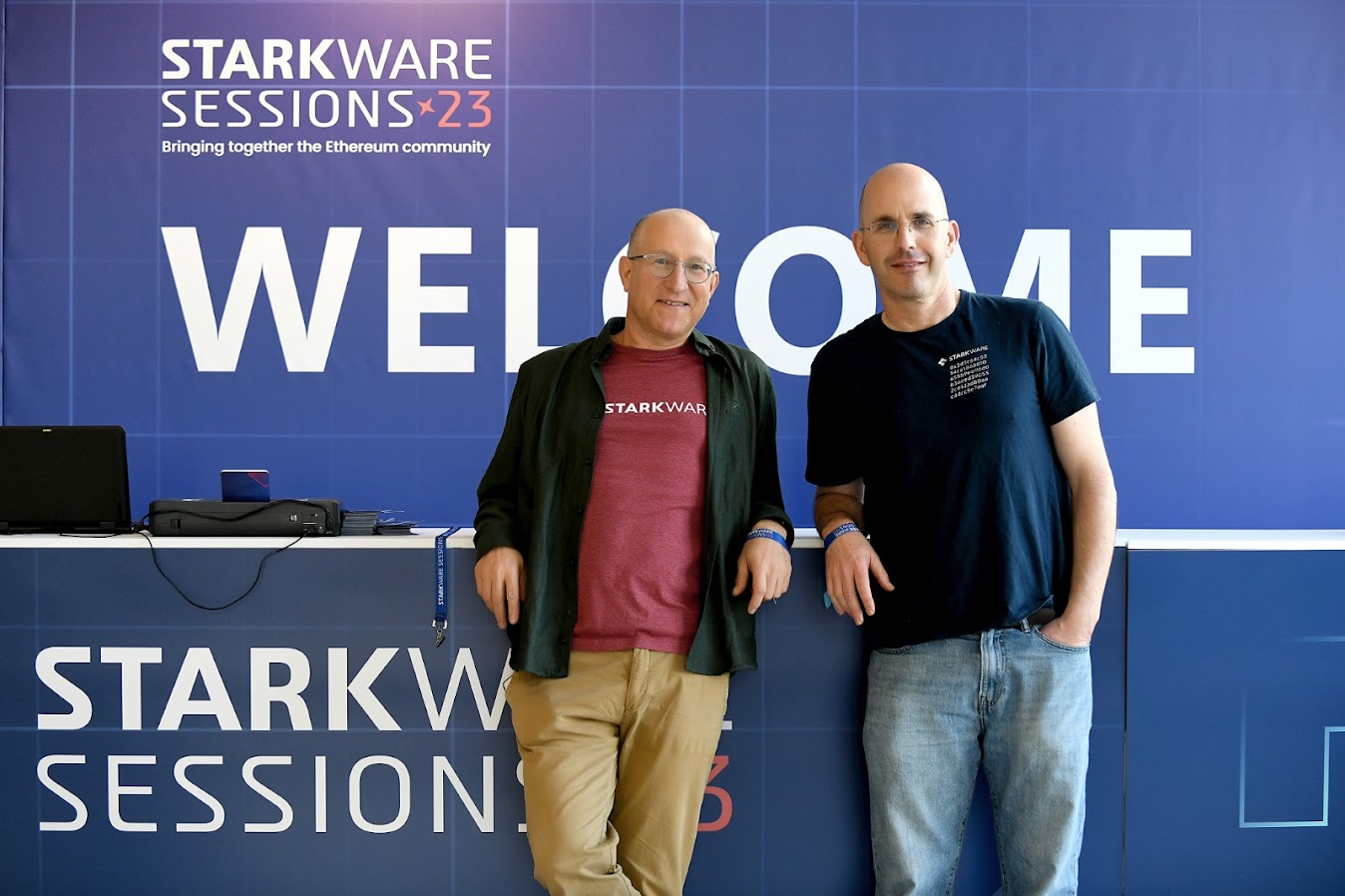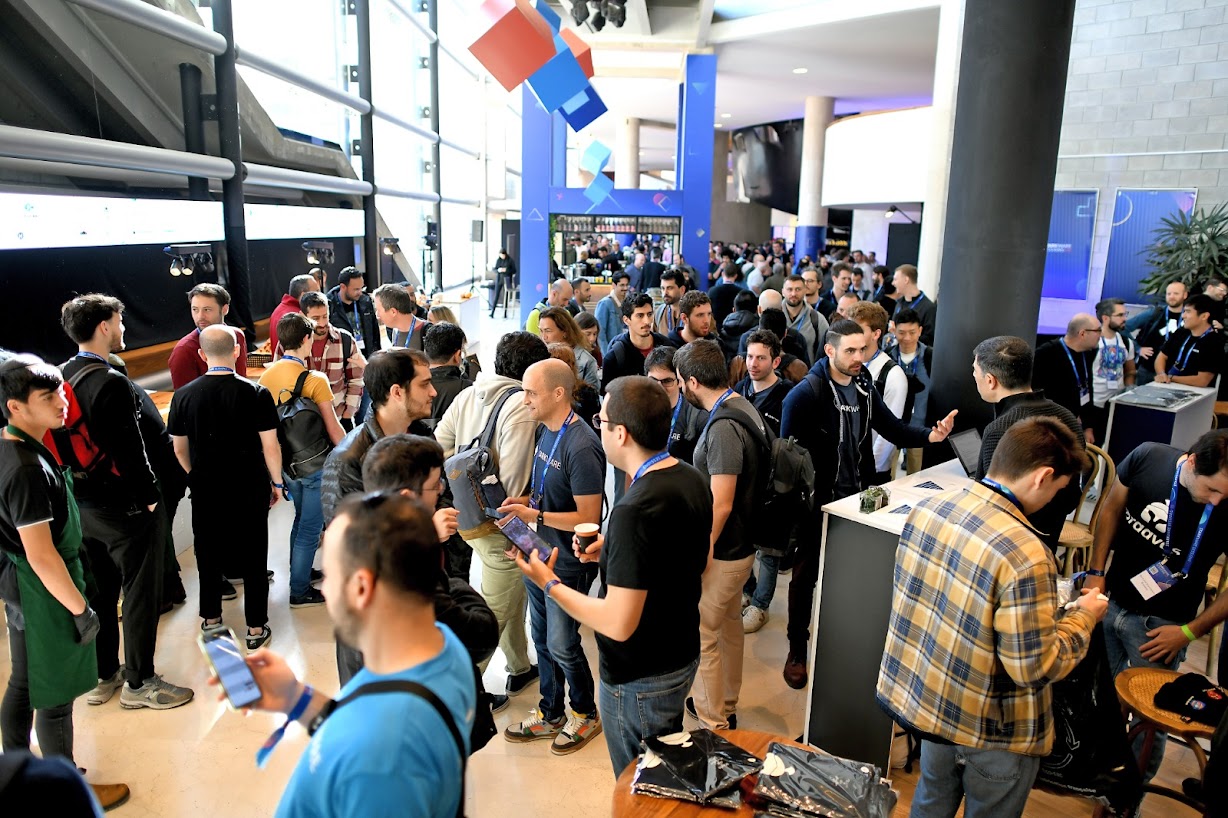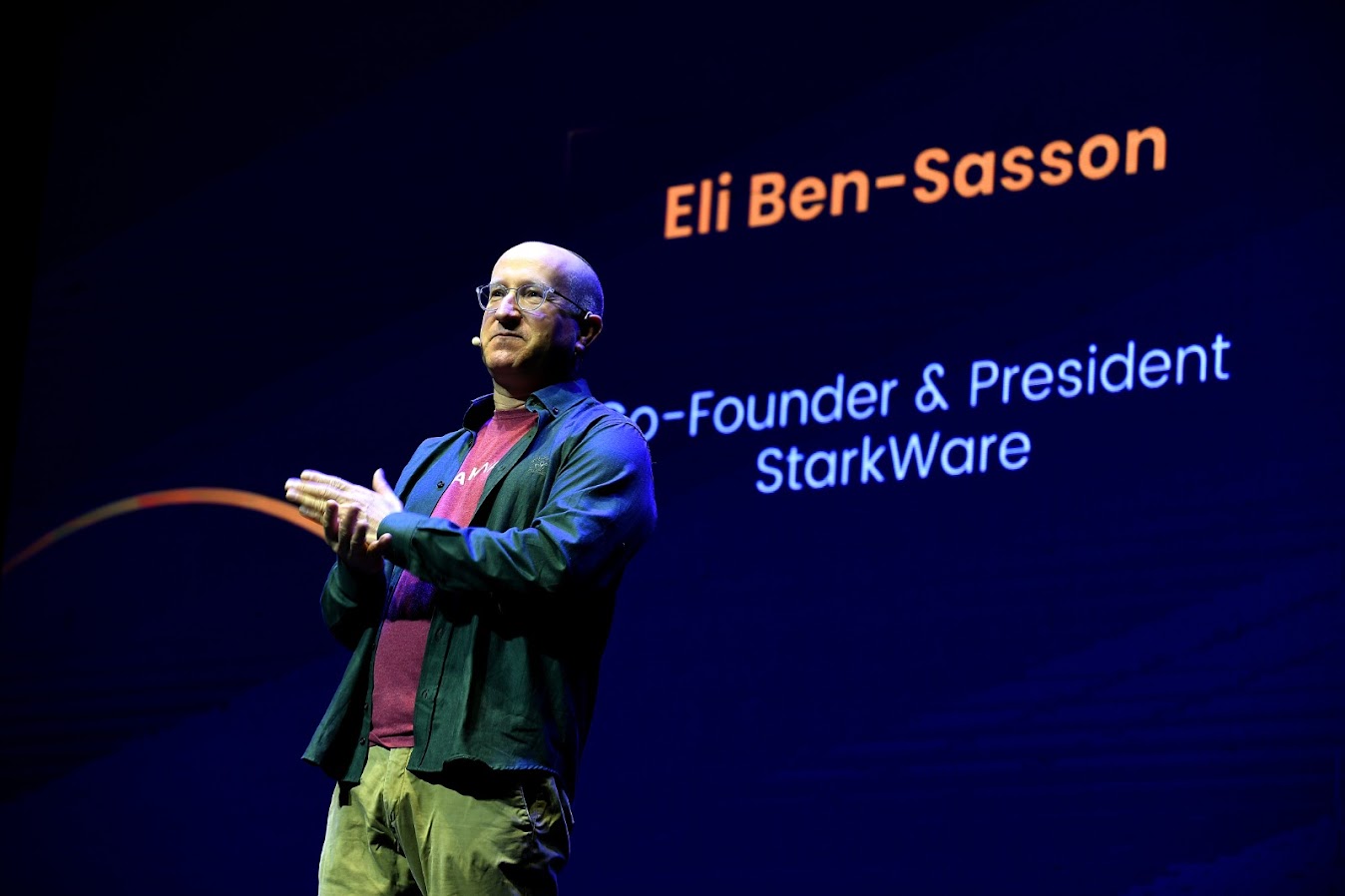- StarkWare Sessions 2023 draws crowd of 700, including top Ethereum builders
- Mindset is shifting from ‘please don’t be evil’ to ‘tech won’t let you be evil’
- ‘This tech can get the next billion people using crypto’
By StarkWare
In the largest event on new crypto tech since the FTX scandal, hundreds of innovators united to explore infrastructure that promises to make it impossible for exchanges to steal funds.
Some 700 crypto leaders, experts and coders descended on Tel Aviv to discuss and showcase projects built on StarkEx and Starknet.
These networks enable users to interact with exchanges confident in the knowledge that exchanges simply can’t misappropriate their funds.
“In everyday life we all expect the messaging services we use to offer end-to-end encryption, meaning they handle our conversations but can’t listen in to them,” said the leading cryptographer Eli Ben-Sasson, one of the event organizers. “But we still use crypto systems that let third parties like FTX get their hands on our funds.
“The battle-tested technology we’ve spent this week exploring provides the equivalent of end-to-end encryption for trading over crypto, meaning no one can access and misappropriate funds. It’s about enabling mass adoption and ensuring people have access to a range of exchanges and applications, while ensuring none of them can ever withdraw any funds without your explicit approval.”
Ben-Sasson is Co-founder and President of StarkWare, the $8 billion company that built StarkEx and Starknet, and ran this week’s events, StarkWare Sessions 2023, and a follow-up seminar which finished on Tuesday. He is co-inventor of the cryptography — the STARK protocols — which give the networks their “end-to-end encryption” quality and also mean that they massively cut transaction costs or “gas fees.”
StarkEx and Starknet are known as “Layer 2” networks that run over the Ethereum blockchain, which anchors their security. They have processed more than $800 billion in transactions, and provide infrastructure for Immutable X, Sorare and dYdX.
Their design empowers developers to offer a more user-friendly experience — closer to Web2 sites — than is currently common in crypto.
While Starknet was built by StarkWare, it is decentralized, and an ongoing process is transferring it from StarkWare control to community governance. Ben-Sasson announced at the Tel Aviv event that the core software powering the networks, the STARK Prover, is to be open-sourced.

StarkWare President Eli Ben-Sasson and CEO Uri Kolodny
“We’re seeing this STARK technology, which most people haven’t heard of but which will soon underpin the apps we all use, becoming public property,” said one of the speakers Itamar Lesuisse, Co-founder and CEO at Argent, a company that built a smart wallet on StarkNet.
“This is huge. It’s driving the growth of a big community of people from all over the world who are excited to build on this infrastructure. We’re collectively saying: let’s shift the paradigm in crypto from ‘please don’t be evil’ to ‘the tech means you just
can’t be evil.’”
Other speakers at the event included Cuy Sheffield, head of crypto at Visa, which announced in December it has been experimenting with Starknet to facilitate crypto auto-payments; Uri Kolodny; StarkWare Co-founder and CEO, Dankrad Feist, researcher at the Ethereum Foundation; Emin Gün Sirer, Co-Founder and CEO at Ava Labs; and the leading Ethereum protocol engineer Tomasz Stańczak, who is Founder and CEO at Nethermind.
Lancelot de Ferrière, CTO of Briq, an NFT-building protocol, said that as companies showcased new products or new code, the atmosphere was reminiscent of presentations at early internet conferences and early Apple announcements.
“The atmosphere at the event has been so lively,” he commented. “Some of the presentations felt like early Steve Jobs announcements — those moments when those who understood the technology realized ‘wow, this is a moment of change,’ and others later understood the significance.
“Starknet attracts a lot of people who want to take crypto out of the fringes. There’s a sense here that crypto isn’t the preserve of the elite — it’s the future for everyone. And there’s a sense we need to make it user-friendly so that using blockchain feels like using the internet — no more technical, no less secure, but just like surfing the web. And also not just for finance, but for a very broad range of uses.”
. @cuysheffield and @visa have fell into the rabbit hole of Account Abstraction!
This is huge! pic.twitter.com/CFniLLBq5C
— Starknet-Ecosystem.com ✨ (@StarknetEco) February 5, 2023
Motty Lavie, Founder and CEO of Braavos, a smart contract wallet provider, said that the excitement about advances in user experience that Starknet enables was tangible.
He commented: “There was a strong feeling throughout the event that the StarkNet ecosystem has the potential to get the next billion people using crypto — and enable people to get started with no technical knowledge because we’re making that leap to an affordable and friendly user experience.
“As StarkNet becomes more mature and gets ready for primetime, its two strongest characteristics have dominated discussions. The first is the very low gas fees, which are a product of the way STARK cryptography works — bundling many transactions into a small easy to verify proof, and therefore making it far cheaper to write them to the blockchain.

“The second is the innovation that enables a much better user-experience, known as account abstraction,” added Motty Lavie.
“This means that using crypto, or Web3, becomes very much like using classical Web2 applications on the internet. Instead of maintaining and inputting complex seed phrases or knowing about technical concepts such as private-keys to sign transactions, we can simply use our phone’s built-in biometric capabilities and strong security chip for authentication. For example, using fingerprint or face recognition to sign transactions.
“We can bring this intuitive and simple experience to what we call self-custodial wallets, meaning crypto which is fully in your control and nobody can get their hands on your funds. It gives more people the confidence to use self-custodial solutions and not to default to centralized players, like FTX and others.”

